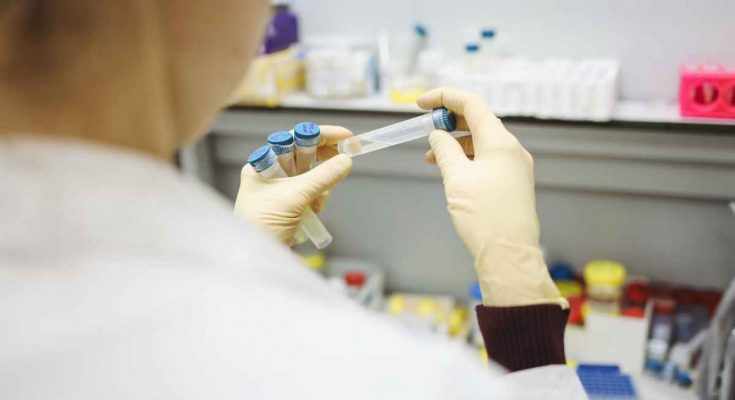Drivers to Undergo Testing for Chronic Alcoholism and Drug Use
Applicants for driver’s licenses in Russia will soon be required to provide blood or urine samples to test for chronic alcoholism and the presence of certain banned substances, including opiates, cannabinoids, cocaine, and methadone. The Ministry of Health has developed a new order regulating the process for obtaining medical certificates as part of driver medical commissions. According to the document, additional testing will be required if a doctor observes signs of chronic alcoholism or drug addiction, though the order does not specify what these signs are. For drivers seeking to regain their licenses after revocation, the procedure will be mandatory. A similar initiative was attempted in 2019 but was criticized by President Vladimir Putin.
New Medical Order and Testing Procedures
The draft order, which “Kommersant” reviewed, sets new rules for medical examinations for drivers and license applicants, including certificates for obtaining and renewing licenses. The document is currently under review by the Analytical Center under the government as part of the “regulatory guillotine” initiative. The current order No. 344n from 2015 will be repealed, and the new rules will take effect on January 1, 2022.
The key change is the introduction of testing for chronic alcoholism. The Ministry of Health has been trying to implement such testing since 2019. At that time, the agency proposed amendments requiring citizens to take a blood test for carbohydrate-deficient transferrin (CDT), a specific marker indicating chronic alcohol use. The new rules were supposed to take effect in November 2019, but due to the high cost of the tests, the price of medical certificates was expected to increase 10–13 times (in some regions, up to 3,000–5,000 rubles). This led to long lines of people trying to get certificates at the old prices, and the initiative was sharply criticized by President Putin. As a result, the Ministry postponed the new rules to 2022, promising to revise the document.
The current draft replaces the CDT test with a more general term: “laboratory tests of blood and/or urine to determine chronic alcohol use.” The Ministry of Health has explained that there are other ways to detect alcoholism besides the CDT test, but the order does not specify which methods will be used. The document states that citizens will be referred for testing if a doctor notices signs of chronic alcoholism, and for those regaining their licenses after revocation (for example, after a court decision for drunk driving), the procedure is mandatory. If the tests are positive—meaning substances indicating the disease are found—the person will be sent for a full examination at a specialized clinic (narcological dispensary) for diagnosis.
Drug Testing and Legal Background
Another new requirement is urine testing for “the presence of psychoactive substances” (opiates, cannabinoids, cocaine, methadone, etc.). This testing was also included in the 2019 amendments. Urine tests will be required for those whom a doctor suspects of drug addiction, as well as for those regaining their licenses after revocation. Banned substances are detected through a two-stage chemical-toxicological study. First, a rapid test is performed (preliminary chemical-toxicological study, results within two hours), and if traces of banned substances are found, a confirmatory test is conducted. Delivery of biomaterials to the laboratory should take no more than ten days, and the test itself should not last more than three days.
It is important to note that “mental disorders and behavioral disorders associated with the use of psychoactive substances” are official contraindications for driving, according to government decree No. 1604 from 2014. This includes chronic alcoholism, drug addiction, and “dependence syndrome” on various substances.
Expert Opinions and Concerns
The Ministry of Health did not provide a comment to “Kommersant.” The new rules will affect millions of people: according to the traffic police, in 2020, 1.2 million people received new licenses, and another 4.7 million licenses were issued as replacements for expired, lost, or stolen ones.
Professor Yuri Sivolap of the Department of Psychiatry and Narcology at Sechenov Medical University believes that the new vague wording will still result in the use of “expensive and unreliable” CDT tests. “Kommersant” found evidence of mass purchases of such tests by regional narcological dispensaries in 2019–2020. Sivolap explains that there are no laboratory markers for any mental disorder, including alcohol dependence. Carbohydrate-deficient transferrin can only suggest that a person may be consuming alcohol, and false positives are possible. Proper diagnosis requires a clinical assessment by a competent doctor, who should consider laboratory results as part of a broader evaluation. Sivolap argues that sending people for in-depth examinations at a narcological dispensary after a positive test is unnecessary, as diagnoses like depression, schizophrenia, panic disorder, or alcohol dependence are made in a doctor’s office based on formal diagnostic criteria.
Regarding mandatory drug tests, Sivolap believes the presumption of innocence and mental health should apply. “If a citizen is not registered as an addict, is not a criminal, has not been seen using drugs, and is not in the police database, they should be issued a license through the simplest possible procedure,” he says.
Kirill Bakanov, head of the Department for the Study of Regulatory and Analytical Support Problems at the Scientific Center for Road Safety of the Ministry of Internal Affairs, believes that biomaterials for drugs and chronic alcoholism should only be tested in drivers who are at increased risk of causing accidents—the so-called risk group. For others, standard preliminary tests should suffice.
Digitalization and Future Plans
The Ministry of Internal Affairs has not officially commented on the draft order. In 2019, the agency developed a bill to digitize medical certificates. By July 1, 2022, the police and Ministry of Health plan to establish digital information exchange about drivers through a unified state information system in healthcare, with data provided by both public and private clinics. According to “Kommersant,” these amendments are still under government review and have not yet been submitted to the State Duma.



